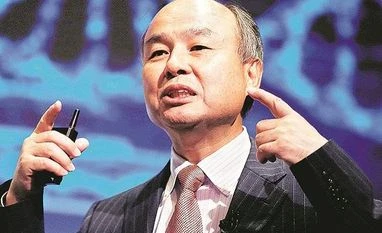Masayoshi Son, the billionaire founder of SoftBank Group Corp., made a huge personal bet on bitcoin just as prices for the digital currency peaked, losing more than $130 million when he sold out, according to people familiar with the matter.
Mr. Son, who launched the world’s biggest venture-capital fund on the strength of his long-term investing acumen, made the investment in late 2017 at the recommendation of a well-known bitcoin booster, whose investment firm SoftBank bought that year, the people said.
The exact size of the bet couldn’t be determined, but it came at the peak of the bitcoin frenzy after the digital currency had already risen more than 10-fold in 2017, the people said. Bitcoin peaked at nearly $20,000 in mid-December 2017, and Mr. Son sold in early 2018 after bitcoin had plummeted.
Bitcoin was trading up 3.8% at $5,586.88 late afternoon Tuesday.
Mr. Son, who is among the world’s most influential technology investors, is known for quick investment decisions and big risky bets, most of which have paid off. He decided to back Alibaba Group Holding Ltd. after spending a mere five minutes with its founder, Jack Ma, and he took a half-hour to greenlight a $200 million investment in a startup that grows vegetables indoors.
Mr. Son’s previously unreported bitcoin loss shows that even some of the world’s most sophisticated and wealthiest investors got caught up in the frenzy. With a net worth estimated by Bloomberg LP at $19 billion, Mr. Son will hardly notice, though it dents his reputation as a patient and prophetic investor.
A SoftBank spokesman declined to comment on Mr. Son’s behalf.
Mr. Son was encouraged to make the investment by Peter Briger, the co-chairman of asset manager Fortress Investment Group, the people said. SoftBank bought Fortress in February 2017, inheriting the asset manager’s bitcoin reserves along with its more traditional investment funds.
Fortress under Mr. Briger first bought bitcoin in 2013, when it was still a fringe technology used mainly in the darker corners of web commerce. By the time the SoftBank acquisition was completed, Fortress’s bitcoin holdings were worth more than $150 million.
Mr. Briger declined to comment through a spokesman.
Mr. Son built SoftBank mostly on long-term technology investments and used his record to launch the $100 billion SoftBank Vision Fund. The fund, backed by the government investment fund of Saudi Arabia, owns big stakes in Uber Technologies Inc. and WeWork Cos., and has been credited with driving up valuations of some of the biggest private technology companies.
The Vision Fund is facing a test of its success with the coming initial public offering of Uber, which is aiming for a valuation of as much as $100 billion, below previous expectations but still above where the fund invested.
Mr. Son normally has free rein over the fund’s spending, but in December his backers in the Vision Fund balked at a planned $16 billion investment in WeWork that would have given the fund a majority stake in the money-losing co-working startup. Their concerns were about the price, which would have valued WeWork at $36 billion, and
about whether the company would suffer big losses if the economy turned down.Soon after, the fund scaled back its investment to $2 billion.
Even as it looks ahead to futuristic technology, SoftBank’s most immediate problem is its controlling stake in U.S. mobile-phone company Sprint Corp. The 2013 deal for the stake has weighed down the conglomerate with debt, limiting its investing options.
Last week The Wall Street Journal reported that the proposed merger of Sprint and T-Mobile had been challenged by U.S. Justice Department staff lawyers, who expressed concerns that the deal would threaten competition.
Sprint, hoping for approval of the all-stock transaction, said in a regulatory filing last week: “Sprint is in a very difficult situation that is only getting worse. Sprint is not on a sustainable competitive path.”
Unlock 30+ premium stories daily hand-picked by our editors, across devices on browser and app.
Pick your 5 favourite companies, get a daily email with all news updates on them.
Full access to our intuitive epaper - clip, save, share articles from any device; newspaper archives from 2006.
Preferential invites to Business Standard events.
Curated newsletters on markets, personal finance, policy & politics, start-ups, technology, and more.
)